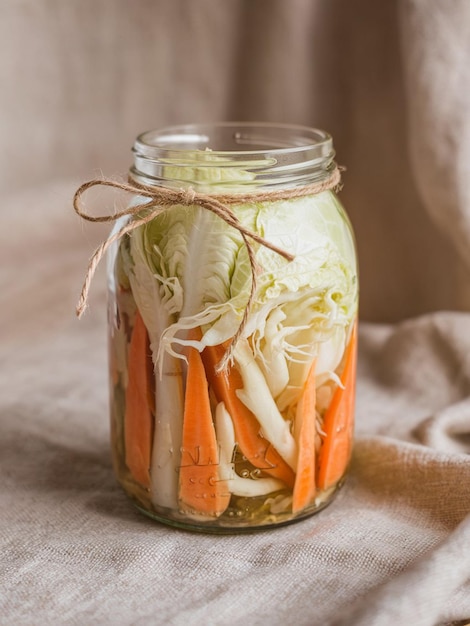
Fermented foods are everywhere now, but do foods like sauerkraut, kimchi, and kefir really improve your health? Let’s dive into how they can benefit you.
Donna Schwenk’s story is a powerful example. At 41, she suffered from preeclampsia during her pregnancy, leading to the early birth of her baby, Holli. Post-delivery, Donna developed diabetes, high blood pressure, and severe fatigue. Struggling with her health, she turned to kefir, a fermented milk drink, after reading about it in “The Body Ecology Diet” by Donna Gates. Adding two teaspoons to Holli’s bottles led to significant weight gain for her baby, and within 12 weeks, Donna’s own blood pressure and sugar levels normalized. She felt a renewed sense of wellness and joy.
Donna, who later authored “Cultured Food for Life,” believes the change came from the positive effects of the bacteria in fermented foods on gut health. Fermented foods not only improve digestion but also boost immunity, aid weight management, and even enhance mood. This perspective is backed by emerging research and a growing interest in fermented foods, as seen in a PBS Special and endorsements from influential figures like Michael Pollan.
Nutritionist Kimberly Snyder, who advises celebrities, recommends daily consumption of fermented vegetables to her clients for weight management, improved skin, and increased energy. Meanwhile, clinical nutritionist Kathie Swift emphasizes gut health as essential for overall well-being in her book “The Swift Diet.”
Scientific studies have shown that gut bacteria play a crucial role in health. For example, transferring gut bacteria from lean to obese mice made the obese mice lose weight. The gut is also home to about 70% of our immune system and the enteric nervous system, which produces mood-related chemicals like serotonin.
As we age, our gut tends to have more bad bacteria due to decreased stomach acid and other factors like diet, stress, and medications. This imbalance can lead to various health issues, from food intolerances to chronic fatigue and skin problems.
Daniel O’Shaughnessy, a registered nutritional therapist, explains that repopulating the gut with good bacteria can alleviate these symptoms. Consuming a variety of fermented foods ensures you get different beneficial bacteria strains. Unlike commercial probiotic drinks, which often contain high sugar and transient bacteria, fermented foods provide a more diverse and lasting bacterial population.
Fermentation is a traditional food preservation method used worldwide. Foods like kimchi in Korea, sauerkraut in Germany, and natto in Japan have long been part of cultural diets and are linked to positive health outcomes.
To incorporate fermented foods into your diet, start small and gradually increase intake to avoid digestive upset. Look for raw, live cultures in the refrigerated section of health stores. Making your own fermented foods at home is also an option and can be as simple as using a jar and some salt.
Popular fermented foods include kefir, miso, sauerkraut, coconut yogurt, and kombucha tea. Each offers different bacterial benefits, and consuming a mix of these can support a healthy gut flora.
In summary, fermented foods can positively impact your health by enhancing gut bacteria, thus improving digestion, immunity, weight management, and mood. Start with small portions and diversify your intake to get the most benefits.




